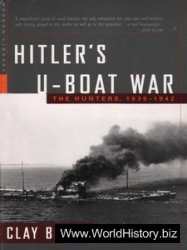On Tuesday September 6, 1944, Churchill and his three chiefs-of-staff left the Clyde on board the liner Queen Mary for Halifax, Nova Scotia. Here a special train took them to Quebec late in the morning of September 11. President Roosevelt and his military colleagues were waiting for the British party. To Winston Churchill’s great disappointment Harry Hopkins had excused himself: apart from the health reasons which explained his absence (and these were real enough), he was also suffering the consequences of his loss of favour at the White House at this time.
During this Anglo-American conference, which had been named "Octagon”, the discussion concerned mainly the form of participation to be taken by the British forces in the fight against Japan, after the Third Reich had been driven to unconditional surrender. Plan-(j ning included operations in Burma, a possible air and naval offensive from Australia against Singapore, and putting a Royal Navy formation under the command of the American Pacific Fleet, which had just won a victory at the Marianas Islands and was about to win another at Leyte.
In the European theatre, it was decided not to withdraw a single division from the Allied forces in the Mediterranean until the result of the attack the 15th Army Group was preparing to launch across the Apennines was known; its objective was the Adige line, just short of the Piave.
Churchill, now fearful of a Russian take-over of central Europe, expressed hope at Quebec that Alexander’s forces in Italy might in fact be able to reach Vienna before the Red Army.
An agreement was also made between the British and the Americans to mark off their future occupation zones in Germany. After some argument about the allocation of the Westphalian industrial basin, it was decided, according to Admiral Leahy, President Roosevelt’s Chief-of-Staff, to divide the zones as follows; "(a) The British forces, under a British
A President Franklin Roosevelt reviews a guard of honour at the Quebec Conference, September 1944.

A British troops in combat apainst the Japanese in the Burmese junple. Operations in this theatre were among the points discussed at Quebec.
> The highly strategic Burma Road, cutting through the jungle terrain.
Commander, will occupy Germany west of the Rhine and east of the Rhine north of a line from Coblenz following the northern border of Hessen and Nassau to the border of the area allocated to the Soviet Government.
(b) The forces of the United States, under a United States commander, will occupy Germany east of the Rhine, south of the line from Coblenz following the northern border of Hessen-Nassau and west of the area allocated to the Soviet Government.
(c) Control of the ports of Bremen and Bremerhaven and the necessary staging areas in that immediate vicinity will be vested in the commander of the American zone.
(d) American area to have, in addition, access through the western and northwestern seaports and passage through the British controlled area.
(e) Accurate delineation of the above outlined British and American areas of control can be made at a later date.”
Reading this text one notices that:
1. at this time no French occupation zone was provided for;
2. Bremen and Bremerhaven were included in the American occupation
Zone because President Roosevelt wanted to make sure that his troops would be supplied without using French territory; and
3. Berlin was not mentioned and there was no reference to the facilities which the two Western powers would require from their Soviet ally if they were to have free access to the German capital at all times.
Robert Murphy, the American diplomat who had just taken up his duties as adviser to General Eisenhower on German affairs, frequently mentioned and deplored this last point. He states in his memoirs that "no provision had been made for the Anglo-American powers to reach that city”, and notes that his colleague James Riddleberger, the State Department’s delegate to the European Consultative Council in London, who was equally aware of this omission, had suggested that "the occupation zones should converge upon Berlin like slices of pie, thus providing each zone with its own frontage in the capital city”. Murphy also asked Riddleberger whom he had approached with his plan. The latter had told Ambassador Winant, who had been opposed to any modification of the
Original plan and accused Riddleberger of not having confidence in Soviet Russia. Riddleberger replied that on this he was exactly right. Winant told Murphy that the right of access to Berlin was implicit in the Western Allies presence there.
In addition, according to Murphy, the "daydreams” of Winant, the U. S. Ambassador in London, and therefore the American representative for Russo-American affairs at the European Consultative Council, relied too much on Roosevelt’s usual formula: "I can handle Stalin.”




 World History
World History









